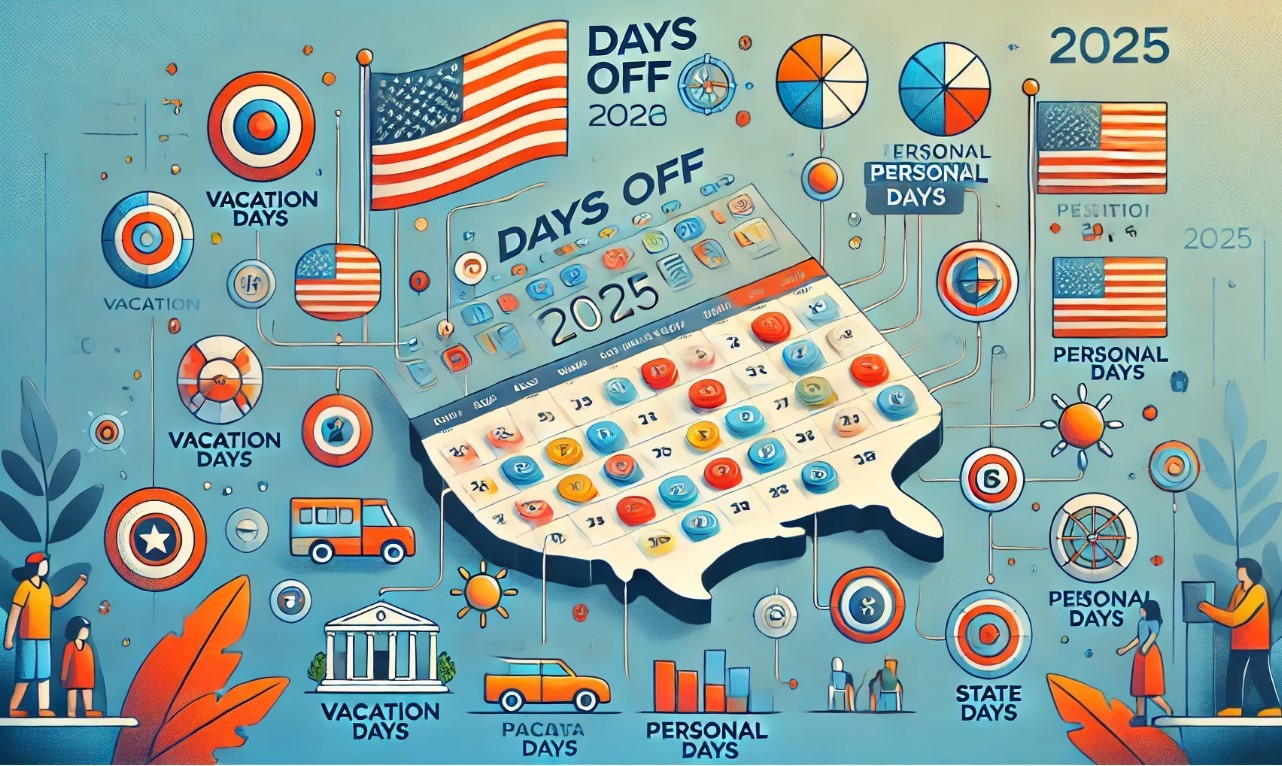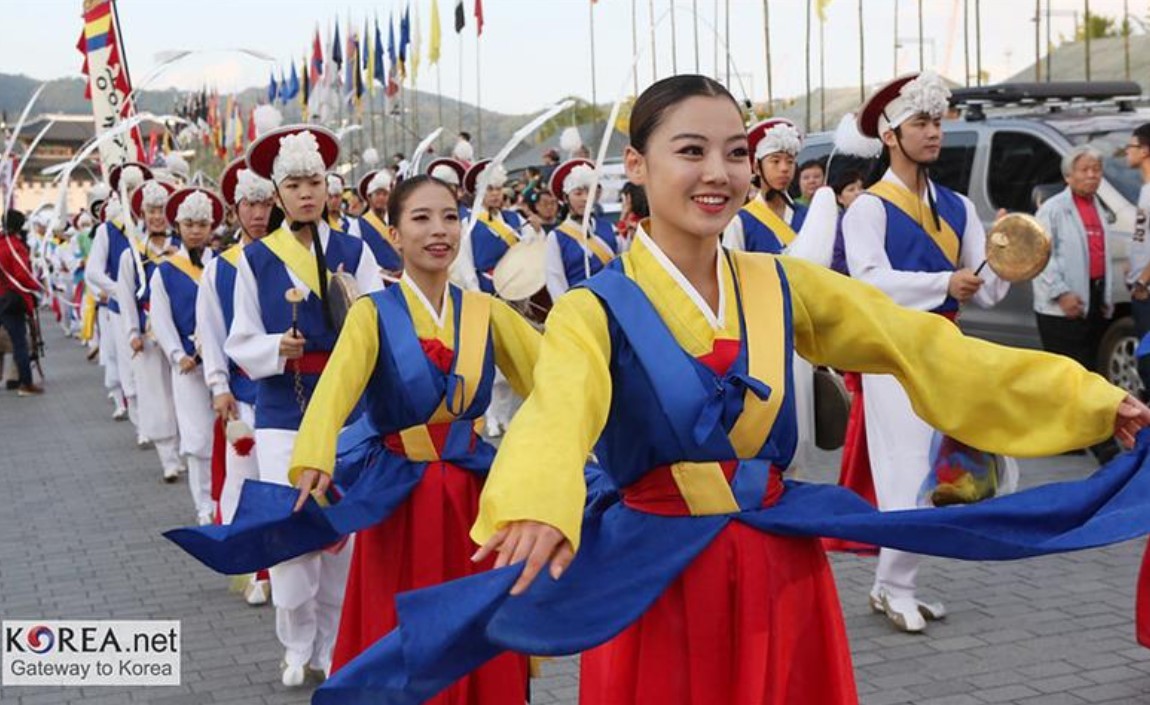U.S. Calendar 2025: Full List of Federal Holidays and Non-Federal Holidays
 Bank Holidays in the US 2025: Dates, Local Variations Bank Holidays in the US 2025: Dates, Local Variations |
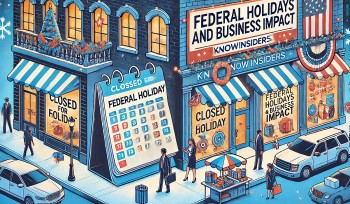 How U.S. Federal Holidays Affect Business Operations How U.S. Federal Holidays Affect Business Operations |
As we look forward to a new year, it’s time to prepare for the days that bring us together to celebrate, reflect, and honor significant events. The holiday calendar 2025 offers a blend of federal holidays and non-federal holidays, each with its unique importance.
Overview: Federal and Non-Federal Holidays in the U.S. for 2025
 |
| US Federal and non-Federal Holidays 2025 |
The United States is known for its diverse and vibrant culture, and its holiday calendar reflects this richness. In 2025, Americans will celebrate a variety of federal and non-federal holidays, each serving as an opportunity to honor historical events, cultural traditions, or personal milestones. These holidays not only provide days of rest and celebration but also foster a deeper understanding of the nation’s heritage and the cultural tapestry of its people.
Federal holidays are recognized nationwide and often involve closures of government offices, banks, and schools. These holidays, such as Independence Day and Memorial Day, commemorate significant moments in American history and offer a chance to reflect on the country’s journey. With set dates or consistent days, they provide an essential rhythm to the year, ensuring Americans can anticipate and plan these moments of collective celebration and remembrance.
In contrast, non-federal holidays highlight the cultural diversity of the nation. These observances, such as Chinese New Year, Ramadan, and Diwali, reflect the traditions of various communities across the U.S. They may not involve official closures but are nonetheless cherished by millions. Other widely celebrated days like Valentine’s Day, Halloween, and Mother’s Day focus on personal relationships and communal joy, bridging cultural boundaries.
Whether honoring heroes of the past or celebrating modern traditions, the holidays of 2025 promise moments of joy, reflection, and unity. By recognizing these days, Americans come together to honor their shared history and the unique traditions that make the country so dynamic. As you plan your year, take note of these significant dates to fully embrace the spirit of each occasion.
Learn more: US Calendar 2025 - Full List of Public Holidays And Observances: Dates and Celebrations
Full List of Federal Holidays 2025 in the US
1. New Year’s Day: January 1, 2025 (Wednesday)
New Year’s Day marks the beginning of the calendar year and is celebrated across the United States with festivities, resolutions, and gatherings. Many people stay up to watch the iconic Times Square ball drop in New York City or host their own celebrations to welcome the new year with hope and optimism.
2. Martin Luther King Jr. Day: January 20, 2025 (Monday)
Honoring the legacy of Dr. Martin Luther King Jr., this holiday celebrates his fight for civil rights and social justice. Communities often hold marches, volunteer events, and educational programs to reflect on his vision of equality and nonviolent activism.
3. Washington’s Birthday (Presidents Day): February 17, 2025 (Monday)
Also known as Presidents Day, this holiday celebrates the contributions of George Washington, Abraham Lincoln, and other U.S. presidents. Many states hold historical reenactments and events honoring the nation’s leadership and governance.
4. Memorial Day: May 26, 2025 (Monday)
Memorial Day honors those who sacrificed their lives in military service to the nation. It is observed with parades, ceremonies, and moments of silence. Families also visit cemeteries and place flags or flowers on the graves of veterans.
5. Independence Day: July 4, 2025 (Friday)
Celebrating the adoption of the Declaration of Independence in 1776, July 4th is a day of patriotism, fireworks, and barbecues. Cities and towns across the U.S. host parades and firework displays to commemorate this pivotal moment in history.
6. Labor Day: September 1, 2025 (Monday)
This day honors the contributions of American workers to the country’s growth and prosperity. Many families use the long weekend to relax, travel, or participate in community events such as parades and picnics.
7. Columbus Day: October 13, 2025 (Monday)
Columbus Day commemorates Christopher Columbus’s landing in the Americas in 1492. It is celebrated with parades and events, particularly in communities with strong Italian-American roots, while also sparking discussions about indigenous history and heritage.
8. Veterans Day: November 11, 2025 (Tuesday)
This holiday honors all who have served in the U.S. Armed Forces. Cities host ceremonies, parades, and other events to recognize veterans’ sacrifices and express gratitude for their service to the nation.
9. Thanksgiving Day: November 28, 2025 (Thursday)
Thanksgiving is a time for family gatherings and expressing gratitude. Traditionally, Americans share meals that include turkey, stuffing, and pumpkin pie, while reflecting on the blessings of the past year.
10. Christmas Day: December 25, 2025 (Thursday)
A celebration of the birth of Jesus Christ, Christmas is marked by gift-giving, festive meals, and family gatherings. Many decorate their homes with lights, ornaments, and Christmas trees, creating a warm and joyous atmosphere.
Full List of Non-Federal Holidays 2025 in the U.S.
Groundhog Day: Sunday, February 2
Groundhog Day is a quirky tradition where Punxsutawney Phil, a famous groundhog, predicts the length of winter. If he sees his shadow, six more weeks of winter follow; if not, spring is near.
Chinese New Year: Wednesday, February 19
Chinese New Year marks the start of the lunar calendar and is celebrated with family reunions, feasts, and traditional lion dances. It’s a time to honor ancestors and wish for good fortune in the coming year.
Mardi Gras: Tuesday, March 4
Known as "Fat Tuesday," Mardi Gras is a festive day before Lent begins. New Orleans is famous for its parades, bead-throwing, and colorful costumes during this time of celebration and indulgence.
Valentine’s Day: Friday, February 14
Valentine’s Day celebrates love and affection between partners, friends, and family. People exchange gifts, cards, and flowers to express their heartfelt emotions, making it a special day for relationships.
Ash Wednesday: Wednesday, March 5
Ash Wednesday marks the start of Lent in the Christian tradition. Many attend church services where ashes are placed on their foreheads as a symbol of repentance and preparation for Easter.
Ramadan: (tentative) Evening of March 30 through April 28
Ramadan is a holy month for Muslims, observed with fasting from dawn to sunset, prayer, and reflection. It is a time to strengthen faith and practice generosity toward others.
St. Patrick’s Day: Monday, March 17
St. Patrick’s Day celebrates Irish culture and heritage. Parades, green attire, and festive gatherings are common, as communities honor Ireland's patron saint.
Nowruz: Thursday, March 20
Nowruz, or Persian New Year, is a celebration of spring and renewal. Families gather to enjoy special meals, clean their homes, and partake in symbolic traditions like the haft-seen table.
Holi: Friday, March 14
Known as the "Festival of Colors," Holi is a joyous celebration in Hindu culture. Participants throw colored powders, dance, and sing, symbolizing the victory of good over evil and the arrival of spring.
Good Friday: Friday, April 18
Good Friday commemorates the crucifixion of Jesus Christ and is observed with solemn church services and prayer. It is a day of reflection and reverence in the Christian faith.
Easter Sunday: Sunday, April 20
Easter celebrates the resurrection of Jesus Christ and is marked by church services, festive meals, and traditions like egg hunts and the Easter Bunny for children.
Cinco de Mayo: Monday, May 5
Cinco de Mayo honors Mexico's victory in the Battle of Puebla. In the U.S., it is widely celebrated with parades, music, and Mexican cuisine, recognizing the contributions of Mexican-American culture.
Mother’s Day: Sunday, May 11
Mother’s Day is a time to honor mothers and maternal figures. Families often celebrate by giving gifts, hosting meals, or spending quality time together.
Flag Day: Saturday, June 14
Flag Day commemorates the adoption of the U.S. flag in 1777. It’s a day to reflect on the history and symbolism of the flag, often marked by parades and patriotic displays.
Father’s Day: Sunday, June 15
Father’s Day honors fathers and father figures, celebrating their influence and guidance. Families show their appreciation with gifts, special outings, and shared moments.
Halloween: Friday, October 31
Halloween is a night of costumes, trick-or-treating, and spooky decorations. Children go door-to-door collecting candy, while others enjoy themed parties and haunted attractions.
Diwali: Begins Sunday, October 19
Known as the "Festival of Lights," Diwali celebrates the triumph of light over darkness and good over evil. It is observed with lamps, fireworks, and family gatherings.
Christmas Eve: Wednesday, December 24
Christmas Eve is a time of anticipation and preparation for Christmas Day. Families often gather for meals, attend midnight church services, and exchange gifts.
Hanukkah: Evening of Wednesday, December 24 through Thursday, January 1, 2026
Hanukkah, the "Festival of Lights," commemorates the rededication of the Second Temple in Jerusalem. Families light menorahs, play dreidel, and share traditional foods like latkes.
Kwanzaa: Friday, December 26 through Thursday, January 1, 2026
Kwanzaa celebrates African-American culture and heritage with seven days of rituals focusing on unity, self-determination, and community building.
New Year’s Eve: Wednesday, December 31
New Year’s Eve is the final celebration of the year, marked by countdowns, fireworks, and parties. It’s a time for reflection on the past year and excitement for the year ahead.
Notes on Observances• Cultural and Regional Variances: Some holidays, such as Holi, Ramadan, and Nowruz, are celebrated based on cultural or regional traditions. Dates may vary slightly depending on local observances. • State-Specific Holidays: States and communities may have additional recognized holidays not included in this list. Always check with local authorities or community-specific calendars for the most accurate and relevant details. This list ensures you’re equipped with the knowledge to make the most of 2025’s special days. Enjoy planning your year ahead! |
FAQs
1. What is the difference between federal and non-federal holidays?
Federal holidays are recognized nationwide and involve the closure of government offices, schools, and banks. On the other hand, people widely celebrate non-federal holidays, which typically do not lead to official closures.
2. Do all states observe federal holidays?
Yes, federal holidays are observed across all states. However, some states may have additional state-specific holidays that are not federally recognized.
3. Are non-federal holidays like Halloween and Valentine’s Day considered public holidays?
Non-federal holidays like Halloween and Valentine’s Day are widely celebrated but are not public holidays, meaning businesses and schools typically remain open.
4. How are dates for movable holidays like Easter and Ramadan determined?
Movable holidays like Easter follow the lunar calendar or specific religious calculations. For example, Easter falls on the first Sunday after the full moon on or after the spring equinox, while Ramadan begins based on the sighting of the crescent moon.
5. Can holidays like Nowruz or Diwali vary depending on location?
Yes, cultural holidays like Nowruz and Diwali may vary slightly depending on geographic and community traditions, as they are often based on regional lunar or solar calendars.
6. What is the best way to stay updated about local holidays and observances?
For accurate and localized information, check community calendars, local government announcements, or religious organization schedules specific to your area.
7. Are businesses required to close on federal holidays?
No, private businesses are not required to close on federal holidays, although many choose to do so. Essential services, such as hospitals and emergency responders, remain operational.
8. Are there specific customs or traditions associated with each holiday?
Yes, each holiday has its own set of customs and traditions. For example, Thanksgiving involves feasts and expressions of gratitude, while Memorial Day often includes parades and tributes to fallen soldiers.
9. Why is Columbus Day controversial in some communities?
Columbus Day has sparked debate due to its association with the beginning of colonization in the Americas, which had a profound impact on indigenous peoples. Some communities now recognize Indigenous Peoples’ Day instead.
10. How can I participate in cultural holidays that are not part of my tradition?
Participating respectfully in cultural holidays can be a wonderful way to learn and connect. Attend community events, educate yourself about the holiday’s significance, and engage in customs with an open mind and sensitivity.
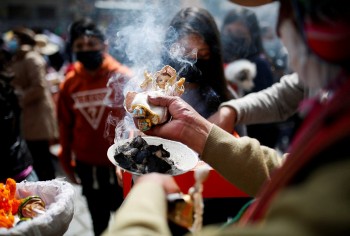 2025 Religious Holidays in the US: Dates, Significance, and Celebrations 2025 Religious Holidays in the US: Dates, Significance, and Celebrations In 2025, various religious groups will celebrate their important holidays, each with its own unique history, meaning, and traditions. This article explores some of these ... |
 Religious Holidays in Canada 2025: Origins, Significances, Celebrations, and Closures Religious Holidays in Canada 2025: Origins, Significances, Celebrations, and Closures KnowInsiders outlines the key religious holidays in Canada in 2025, their origins, significance, common celebratory activities, and whether schools and offices close during these observances. |
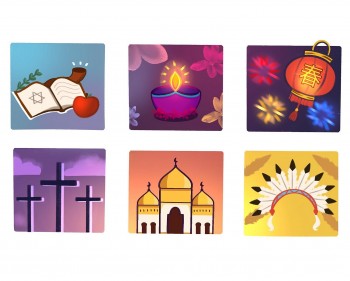 Top 20 Major Religious Holidays Worldwide 2025: Origins, Significances, and Celebrations Top 20 Major Religious Holidays Worldwide 2025: Origins, Significances, and Celebrations We explore the top 20 religious holidays celebrated globally, detailing their origins, significance, and the various activities associated with them. |
 2025 US Calendar with Holidays for Nonprofits and Charitable Organizations 2025 US Calendar with Holidays for Nonprofits and Charitable Organizations KnowInsiders provides an overview of the significant holidays and events that will occur in 2025 for nonprofit organizations and provides advice on how to make ... |

